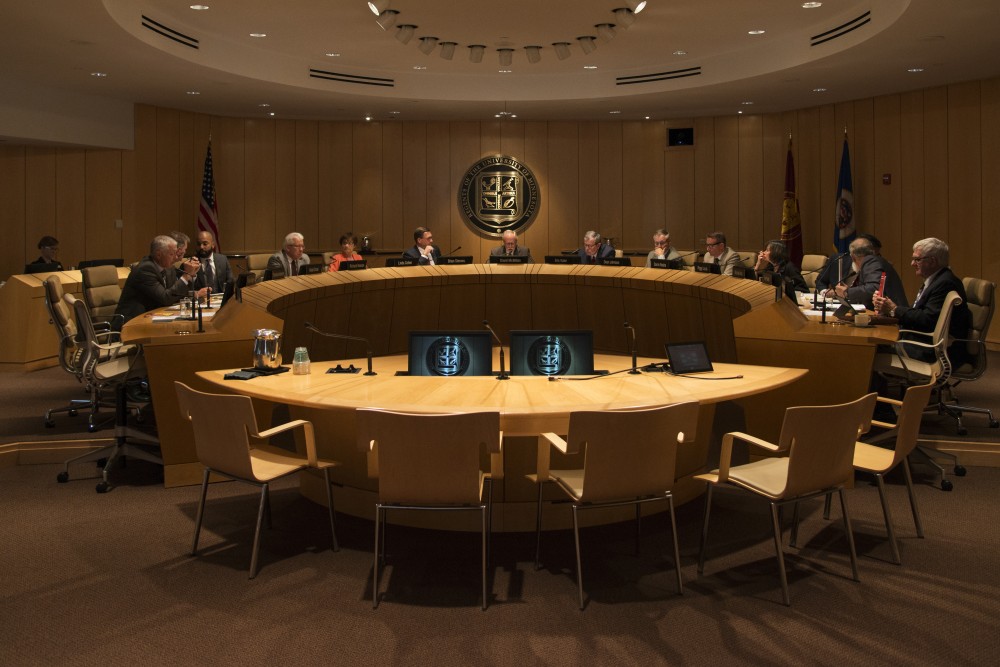The University of Minnesota Board of Regents discussed ways to assess their internal culture and practices during their Feb. 12 meeting.
The process could involve hiring an external consultant or surveying regents to evaluate the board’s effectiveness. The board could also appoint someone to interview faculty and administrators to determine their relationship with the board. Regents voiced mixed feelings about the evaluation, including support as well as concerns about privacy.
“Well-designed assessments really help provide a snapshot of how well the governing board is functioning. It provides a common understanding and language that will allow the group to have conversations that maybe sometimes are difficult or awkward,” board executive director Brian Steeves said during the February meeting.
There have been past evaluations of the board, including a survey in 2014. In 2015, the board held individual meetings between regents and an outside consultant to discuss the strength of relationships between the regents. The board discussed but decided against conducting an assessment in 2017.
Regent Michael Hsu said that he would support an assessment of the regents, particularly to address what he sees as recent shortfalls of the board, such as initially choosing not to fully refund room and board costs to students when many had to leave residence halls following the beginning of the pandemic.
“We don’t try to learn from our mistakes, and that’s, I think, a problem because no one wants to be honest about our mistakes. You know, one of the big mistakes this past year was when the pandemic started and we had the refund issue,” Hsu said. “We did correct it finally, but it was a completely self-inflicted wound, and we did damage to ourselves.”
During the February meeting, Steeves emphasized that the assessment would not be aimed at placing blame on any of the regents.
“If you’re trying to use an assessment to address problems between individual board members or it’s being used to try and place blame for an outcome that maybe certain members didn’t like or as some kind of a quick fix,” Steeves said. “Assessments don’t tend to be helpful in that space and, like I say, can actually be more harmful than good, because in some cases they can be viewed as a kind of a weapon.”
Steeves said that a minority of public universities and colleges regularly assess their governing boards.
Public-facing boards can face multiple difficulties when creating evaluations for themselves, including timing the assessment with when members are elected. Due to the schedule of regent elections, one-third of the board could be replaced every two years. It can be difficult to create an assessment with a new board, or regents who might leave the University in the coming months, Steeves said.
Another difficulty that public institutions face when they attempt assessments is “sunshine” laws that require meetings to be held publicly, Steeves said. These laws can make it difficult for board members to be open with feedback they have for other regents in fear they might not be able to remain anonymous.
Multiple regents voiced support for the potential evaluation but expressed concern about the privacy of their feedback.
“Even in private boards and corporate boards, you know, assessment can give rise to, you know, quite frankly very mixed feelings among board members,” Regent Kendall Powell said during the February meeting. “I think, you know, board members worry about confidentiality.”



















